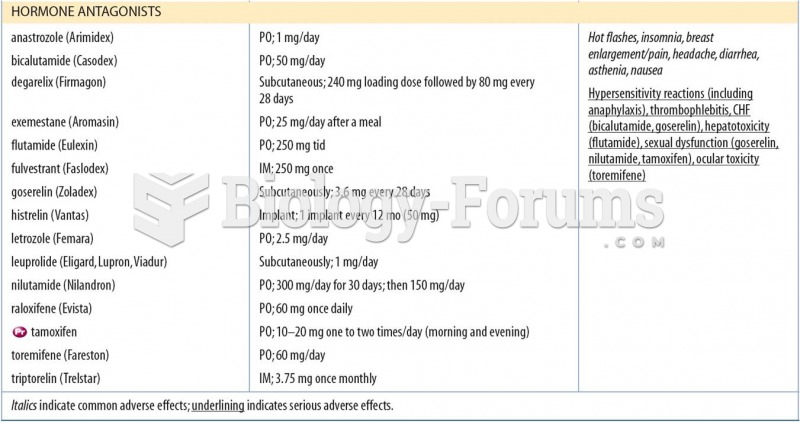|
|
|
Did you know?
There are more bacteria in your mouth than there are people in the world.
Did you know?
The longest a person has survived after a heart transplant is 24 years.
Did you know?
Illicit drug use costs the United States approximately $181 billion every year.
Did you know?
The people with the highest levels of LDL are Mexican American males and non-Hispanic black females.
Did you know?
When taking monoamine oxidase inhibitors, people should avoid a variety of foods, which include alcoholic beverages, bean curd, broad (fava) bean pods, cheese, fish, ginseng, protein extracts, meat, sauerkraut, shrimp paste, soups, and yeast.







